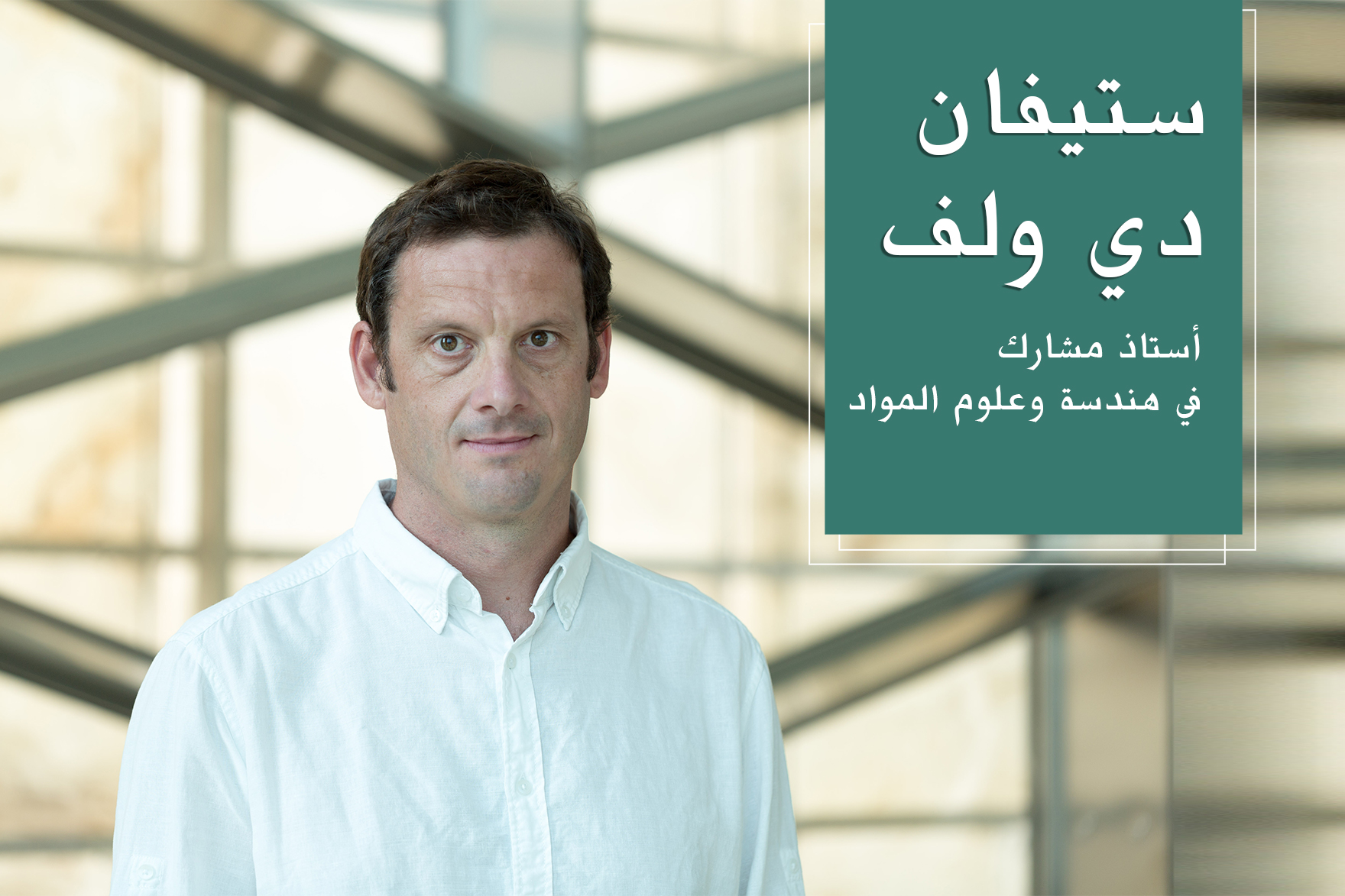Faculty Focus: Stefaan De Wolf

Stefaan De Wolf joined KAUST in September of 2016 as an associate professor of material science and engineering in the University’s Physical Science and Engineering (PSE) Division. He obtained his Ph.D. degree in silicon solar cells at IMEC, a large nano-electronics institute in Belgium. De Wolf then spent several years at The National Institute of Advanced Industrial Science and Technology (AIST) (Japan), followed by almost nine years as a team leader responsible for high-efficiency solar cells at Polytechnique Fédérale de Lausanne (Switzerland).His expertise lies in the science and technology of photovoltaics for terrestrial applications, with his research focusing on the fabrication of high-efficiency silicon-based solar cells. He specifically concentrates on the fundamental understanding of interface structures and electrical contact formation relevant to solar cells and electronic devices.
“The core of my activities is based around silicon heterojunction solar cells, a technology that uses silicon wafers to absorb the sunlight. In these devices, the electric contacts are made by scalable thin-film deposition techniques. Here at KAUST, I am particularly interested in tailoring this technology to develop high-efficiency solar cells that perform very well in hot climates,” he noted.
De Wolf is also interested in new device architectures and applications, such as back-contacted solar cells and silicon-based multi-junction solar cells aimed at the improved utilization of the full solar spectrum for electricity generation.
“Being based at the KAUST Solar Center, I am also very interested in finding strategies to combine silicon solar cells with other solar technologies,” he said. “A very promising combination is the stacking of a so-called perovskite solar cell on top of silicon one. This way, sunlight can be absorbed and converted into electricity even more efficiently. With this, we hope to develop silicon-based solar cells with ultra-high performance at affordable cost. As these devices better convert the light into electricity and not into heat, we also think they will become the ideal solution for hotter climates.”
De Wolf noted that as soon as he heard of the University, “I knew I had to be here because of the KAUST commitment to addressing grand challenges, including the one for sustainable energy supply. At KAUST, time flies, and every day I meet inspiring people—it couldn't be better.”
By David Murphy, KAUST News.

